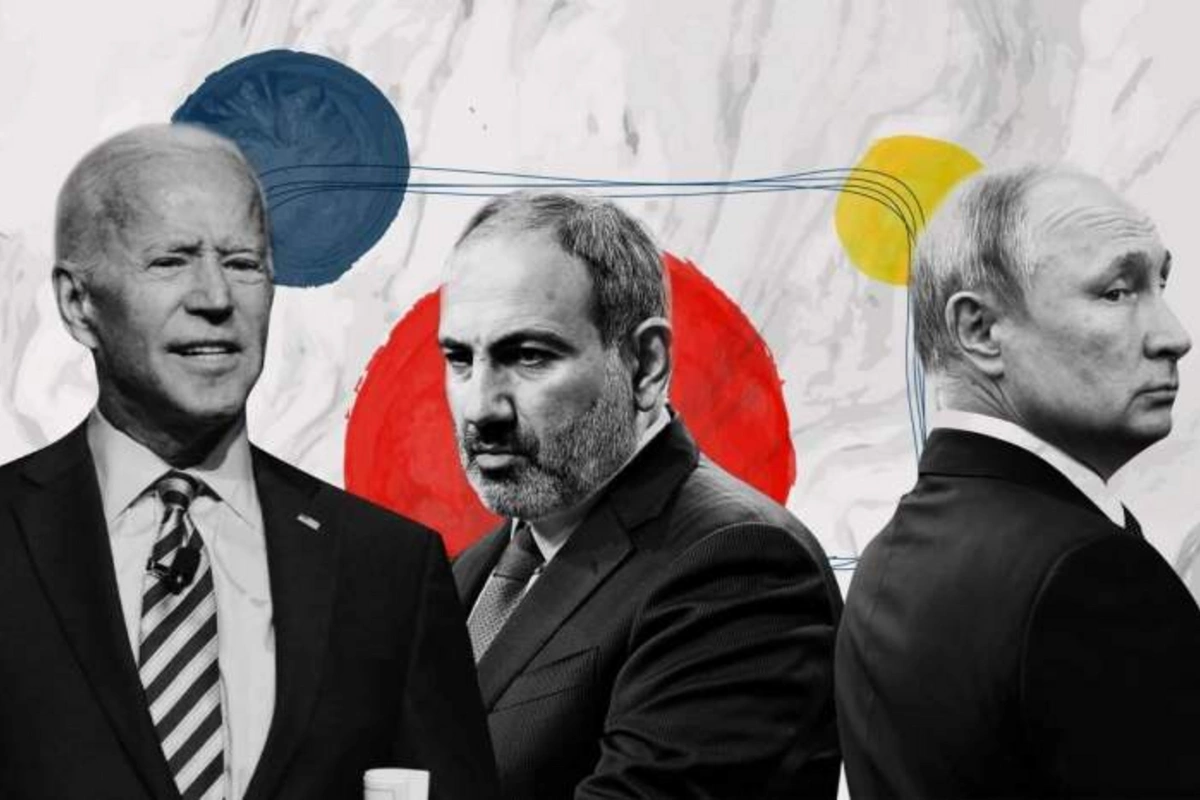
Photo: Google images
Armenia has been rapidly distancing itself from its historical alliance with Russia, pursuing closer ties with the West. While Yerevan views this as an opportunity for new prospects, this shift carries significant risks and could lead to uncertain and potentially perilous outcomes.
Armenian leaders are forging strategic agreements with the United States and the European Union, engaging in high-level discussions at the Pentagon, and fostering relationships with Western organizations. However, history shows that such reliance on Western support often ends in disappointment.
The recent three-day talks between Armenia's defense minister and U.S. officials highlighted the unequal dynamics of these relations. The West, acting as a "benevolent overseer," provides promises and symbolic support, while Armenian authorities make concessions that predominantly serve American interests. These moves not only deepen Armenia's dependence on the West but also raise concerns about its ability to maintain an independent foreign policy.
The Biden administration has placed the South Caucasus at the center of its geopolitical strategy, aiming to counter Russia's influence. Under Nikol Pashinyan's pro-Western government, Armenia has aligned itself with this agenda. Western investments in Armenia's military, joint exercises, and financial aid are coupled with efforts to undermine Russia and Iran's regional roles. Yet, these actions come with significant risks for Armenia.
For example, the deployment of the EU's monitoring mission along the Armenian-Azerbaijani border-a move seen as a surveillance operation-has drawn criticism from both Azerbaijan and Iran. This policy's contradictions are further exposed as tensions escalate between Azerbaijan and the United States, with Baku openly criticizing Washington's perceived favoritism toward Armenia.
Donald Trump's potential return to power could disrupt current U.S. strategies in the South Caucasus. Known for his pragmatic approach, Trump may prioritize economic and strategic benefits over ideological goals. Assistance to Armenia, deemed unnecessary under his administration, could see significant reductions. Trump"s realist perspective might shift focus from a "strategic defeat of Russia" to negotiating with global powers.
Prime Minister Pashinyan"s attempts to engage with Trump, including at the Notre Dame Cathedral reopening in Paris, reflect Armenia"s desire to stay relevant on Washington"s agenda. However, the future of such relations under Trump remains uncertain.
In Georgia, Western strategies face significant challenges. Protests against the government fail to garner widespread support, and efforts to provoke a second front against Russia meet resistance from a population unwilling to repeat Ukraine"s experience. Growing pro-Russian sentiment highlights the limitations of Western influence in the region, further complicating its goals in the South Caucasus.
Amid the turbulence in Armenia and Georgia, Azerbaijan stands out with its well-balanced and pragmatic foreign policy. For over a year, Baku has openly criticized the U.S., maintaining its sovereign stance and fostering relationships with global powers strictly on its own terms. Azerbaijan"s decision to reject U.S. Secretary of State Antony Blinken"s proposal for peace talks with Armenia underscores its commitment to an independent policy.
While Baku avoids escalating tensions with Washington, it continues to demonstrate strategic flexibility, likely already preparing for potential shifts under a new U.S. administration.
The South Caucasus is at a crossroads, with significant changes on the horizon. If Trump returns to power, his pragmatic leadership could alter U.S. engagement in the region, potentially reducing conflicts and creating opportunities for stability.
For Armenia, this could be a chance to reassess its trajectory. Yerevan"s current path, marked by growing dependence on the West, has yet to deliver security or stability. Prime Minister Pashinyan must evaluate whether this course truly serves Armenia"s national interests or risks reducing the country to a pawn in global geopolitics.
In contrast, Azerbaijan"s steady, balanced approach positions it as a leading regional player. Its focus on sovereignty and calculated diplomacy serves as a model for constructive engagement with global powers.
As the South Caucasus navigates this pivotal moment, the decisions made by its leaders will have far-reaching consequences. Only time will reveal which nations capitalize on opportunities and which falter under the weight of their choices.
Share on social media